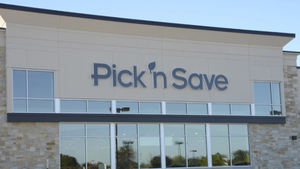New CGA President Looks for More Grassroots Action
The California Grocers Association hopes to get member retailers more involved with their local and state legislators at the grassroots level, according to Ronald Fong, the group's new president and chief executive officer. Today's city councilman is tomorrow's state senator or assemblyman and, in 10 or 15 years, maybe the governor, Fong told SN in his first media interview as the
May 5, 2008
ELLIOT ZWIEBACH
SACRAMENTO, Calif. — The California Grocers Association hopes to get member retailers more involved with their local and state legislators at the grassroots level, according to Ronald Fong, the group's new president and chief executive officer.
“Today's city councilman is tomorrow's state senator or assemblyman and, in 10 or 15 years, maybe the governor,” Fong told SN in his first media interview as the head of CGA. “Imagine what kind of influence we could have if our members knew that politician when he was just starting out.”
California, in addition to being by far the nation's most populous state, also is often the vanguard of legislative activity that later sweeps across the nation.
Fong, 46, was hired by CGA in March after a nationwide search that reportedly involved 75 candidates.
He said his primary long-term goal is to move CGA up to the next level of government relations — to supplement the work of the association's four full-time lobbyists and the contract lobbyists it has on call by engaging as many of CGA's 500 retail members and 300 supplier members as possible in discussing issues with legislators and trying to influence their views.
“With 2,500 bills on the California legislative agenda every year, it's clear we need extra help and a certain level of expertise in our lobbying efforts, and that could come from getting our members to establish relationships at the local level that can help out at the state capital level.”
Fong already knows most of the legislators as a result of 12 years spent as a lobbyist for the California Credit Union League.
Getting members more involved in the legislative process is a goal Fong inherited from his predecessor, Peter Larkin, who left CGA late last year after 11 years to start a consulting business here.
Fong grew up working for United Supermarkets, a family-owned business founded by his grandfather that the family sold in the mid-1990s when he opted to go to law school rather than run the stores.
Once out of school, he was hired by the California Credit Union League, where he stayed for 12 years — ending up as vice president of state government affairs — before taking the job with CGA.
He said he believes his years growing up in retail will help him deal with CGA members. “Coming from that background, I know what it takes to sustain a successful grocery business,” he said.
“It makes me more sensitive to the members' needs because I have a clear understanding of what's involved in operating a grocery store, so when I talk to our retail members, I consider myself one of them.”
Fong said the top issues facing the California industry involve recycling and data breaches.
The top priority right now is a bill on plastic bag recycling, introduced by Assemblyman Lloyd Levine, that would require grocery stores to demonstrate by mid-2011 that they have decreased plastic bag usage by 35%.
“Ten or so years ago, when plastic was becoming popular, people were concerned about the amount of paper bags companies were using and how that was affecting trees,” Fong pointed out. “Now the issue is how much plastics are hurting the environment.”
CGA is opposed to Levine's proposal in its current version, Fong said, “because diversion is not the way to resolve this issue, and decreasing the amount of plastics simply increases the amount of paper used.”
“Two years ago, the legislature passed a bill that took effect last July that requires grocers and other retailers to implement in-store recycling programs for plastic bags and to offer reusable bags for sale. We supported that legislation, and we feel that's the way to go — to change consumer behavior before imposing bans.”
CGA's second legislative priority is a bill dealing with data breaches that would require retailers, including grocers, to comply with PCI standards to protect consumer data and to reimburse financial institutions for the costs of reissuing cards when a security breach occurs because the standards were not met.
“Again, we don't think that's the way to go,” Fong said. “Grocery stores are already compliant with PCI standards, but those standards are being changed all the time, which makes them hard to work with. While we agree retailers should be responsible for any data breaches, we think mandating that they reimburse the banks goes too far, and we're working with Jones to come up with something that makes more sense.”
The third priority is a bill that expands existing recycling laws to cover not only beverage cans and bottles but also any consumer product packaging — such as detergent and shampoo containers — made from plastic.
“Those products contain substances that are contaminated, and there's also the question of deciding whether supermarkets would have to charge a CRV [California Redemption Value] fee, as they do with beverage containers, and we're working to see if we can come to a compromise,” Fong said.
The session will not end until August, and all three bills are likely to come to the floor for a vote by then, Fong said.
About the Author
You May Also Like






